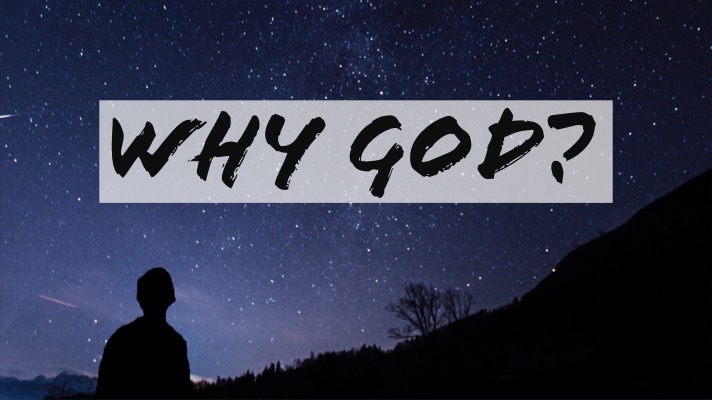 My response…there is no other answer but God. Let me explain before anyone gets ‘offended’ or feels the need to yell ‘God doesn’t exist’ as they read this.
My response…there is no other answer but God. Let me explain before anyone gets ‘offended’ or feels the need to yell ‘God doesn’t exist’ as they read this.
As a Christian, I was raised throughout the Protestant sects of religion, having being influenced from Sundays in the baptist church to Catholic to Methodist to later joining the LDS church, all of which taught about Jesus. From a young age, I could see something was missing, real answers about God. Not about the dreams Joseph interpreted for Pharaoh or the three years of Jesus’ ministry. No, my questions stemmed from another subject matter I loved, science.
When the bones of dinosaurs were uncovered or a new galaxy discovered, my interest peeked, and I wanted to know how it all fit into God’s world. Asking my faith leaders or parents didn’t pan out for me, and I found myself moving away from the church; even in my moments of doubt, I didn’t lose hope that there was a God out there who would someday answer my questions.
Of course, from the pieces of scriptures we have gathered, we can get a pretty good picture of what God expected of his people. Be a good person, give freely, love always, serve others, and don’t murder anyone…however, those attributes are not privy to only those who follow God. Therefore, if you don’t believe in the divine, who do you think set the moral compass for humanity? God.
If a man didn’t have God to set the standard, we would follow the other animals’ examples around us. Adultery turned to personal pleasure and murder as population control, with no consequences. Regardless, our moral code is a big part of the God formula. The part that reminds our inner spirit that we know right from wrong.
This kept God as a part of what I was looking for in answers.
The lines between ‘believers’ and non-believers’ have become fuzzy. Some atheists claim they believe in some universal spirit, and some people go to church that admits to not believing in an actual God. Very confusing, and yet both sides are increasing in numbers.
How did we get so far from keeping God in the equation?
People can give reasons why they don’t accept God. For example, if there is a God, why is he not saving the world from all the suffering? If there is a God, why doesn’t he show himself instead of making his people have faith? Not to mention the number of people who have turned away from God because of the actions of some people who cling to God. Some watch every misstep a Christian, or people from any faith, and use that as a reason not to seek God. People’s audacity to think that believing in God instantly makes humans perfect and our world tolerable…accountability is hard for everyone.
Honestly, though, aside from the excuses that stem from pride and idleness, I feel there are truly two reasons people stopped looking to God for answers ages ago, the separation of our origins and the dilution of translation to the people. Humans have been separated from our original understanding of the universe, including God, for thousands upon thousands of years, and we are trying to Humpty Dumpty it all back together again with no reference point. Where did we get lost? Was it before it after Babel? Or was it after the gates of Eden were shut?
Which brings us to the two topics that differ between those who seek God and those who don’t but seem to stay constant between them all, creation and eternity.
Most religions base their foundation on these topics by laying claim to know how we started on Earth and where we are going when it is over. As followers of God, we can’t agree on what exactly the scriptures say about these two things. Thus we have churches that stand against each other, allowing history to fight wars over the absurdity of religious perspectives. People fighting other people in the name of God? As an outsider trying to seek answers, I can only imagine how that fighting, and killing, over a God might be too intense for someone to become consumed with if they’re already on the fence about the existence of God. It’s not surprising how many decide to skip the whole believing in any God to be therefore not accountable for being wrong. A flip of a coin.
We can use scriptures to show God’s path after creation, and we can even use archeology to prove that stories in the Bible were very true.
Which reminds me. For those who shove their Bible’s into the faces of non-believers, please stop. As I mentioned before, our actions can make or break someone’s decision to seek after God. Yes, the scriptures are a great tool; they can lead us to a deeper connection to God and our eternal salvation, but this only applies after you believe in God. Otherwise, we chance to push people farther away from where God wants them, and the word tells us that everyone will have a chance to know him…trust that and be an example of love with your words and actions. Not that sharing scriptures is wrong because I use it to power my life, but forcing and guilting someone to change is not how Jesus walked the earth.
We live in a culture today that warrants people to make their own decisions and not be held accountable by God’s moral code. Those of us who try to adhere to those standards…we struggle. It’s not easy to bring people to God and make them ‘drink the kool-aid,’ and it’s harder to stay focused toward the Heavens. Especially as the world becomes more and more distracting, and science claims to solve creation without God.
I am one who loves learning about new theories in the world of science, but everything I read brings me closer to God and who He is. We live in a world of extreme intelligence, and at first, it’s intimidating to hear what science has uncovered…but even if you’re on the sides of science without, you require faith as well since no scientific theory about creation has ever been proving the fact. As well, if man’s evolution from a lesser species, wouldn’t we expect to find more ancient writings to reference back to the days they began to walk upright, or the day they turned from the caveman ways? Instead, we find elaborate versions of creation coming from all over the world that reference a God. Why? Because God is the only answer.
Science has answered many questions, so why not God?
Here is where it gets confusing. Science cannot disprove God; as I mentioned, it has yet to explain its own version of creation. Nevertheless, science is a lot like religion in that there are so many types, yet not many of them want to overlap their theories to get along. The challenge comes with all the fancy lingo that makes it sound so complex that unless you’re well versed in thermodynamics and astrophysics, it sounds like facts.
Let’s take something well known, like the Big Bang. The most famed notion of how it all came to be is what most think the theory is trying to explain. In actuality, the Big Bang only states that the universe grew from the rapid expansion of a super hot dense point or singularity. Meaning that it doesn’t explain how the dense point got there…hmm. Now some scientists are questioning this original theory because of new evidence suggesting other possibilities. Here are a few reasons why the Bid Bang doesn’t fit (in advance, I apologize for the confusion of these next statements):
It violates thermodynamics’ first law, which says you can’t create or destroy matter or energy. Fans of the big bang theory say that it doesn’t address the creation of the universe but rather its evolution. Since the laws of science break down as you approach the creation of the universe, there’s no reason to believe the first law of thermodynamics would apply.
Basically, they are saying that the closer we get to creation, the laws of science on earth don’t seem to apply…really? Here’s the thing, no one on this planet has created or destroyed matter or energy because only God knows how to create something out of nothing. Others say that the formation of stars and galaxies violates entropy law, which suggests systems of change become less organized over time. Yet, if you view the early universe as completely homogeneous (made of the same stuff) and isotropic (having the same physical properties throughout), then the universe shows signs of obeying the law of entropy.
God and his teachings have been the same from the beginning. He is not a God of confusion. Our reference to creation lines up in an organized manner as God laid it out from the beginning; we didn’t get the detailed version because salvation seemed to be more important.
The early inflationary period of the big bang appears to violate the rule that nothing can travel faster than light speed.
We know light to be the fastest thing we’ve discovered, but that doesn’t mean something faster doesn’t exist. Especially if our universe shows an equilibrium temperature that can’t be explained without a power faster than the speed of light, but God can.
Also, what was inside that so-called hot dense point? Everything we see today? If the matter cannot be created out of anything according to science, then everything that we see in our universe had to of existed at that point…yet only a year ago, astronomers were able to capture pictures of a planet being born, https://nypost.com/2018/07/02/scientists-capture-first-ever-image-of-planet-being-born/
We have yet to explain the mysteries of our own planet, and we don’t know for certain what lies beneath the layers of our earth; we can’t explain why magnetic north is all of a sudden moving faster than ever recorded…but God…that is why.
Do I think science is wrong, not about everything? I know we have some brilliant people in our world who have studied the universe wanting answers. Those answers can be as simple as making God the equation.
Often I wonder how life on other planets views God. Have they advanced past the confusion? Did they eat the fruit in the Garden of Eden? Or did they never lose sight of God?


